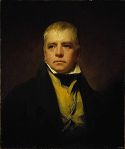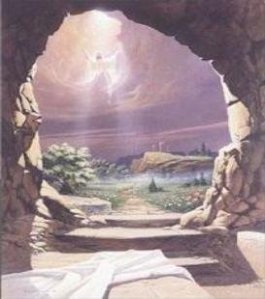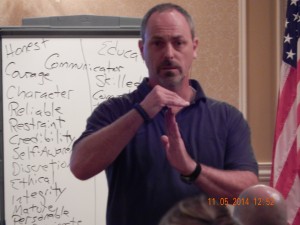Category Archives: Uncategorized
As of tonight, we hit the 20,000 mark on the Police Dynamics Blog Site! Thank you for your interest and support of these character-based principles of effective law enforcement. Please pass the link on to your friends and colleagues so we can build an even stronger base of those who support and believe in these powerful principles…
– E. M. Gray
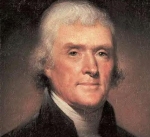 “And can the liberties of a nation be thought secure when we have removed their only firm basis, a conviction in the minds of the people that these liberties are the gift of God? That they are not to be violated but with his wrath? Indeed I tremble for my country when I reflect that God is just: that his justice cannot sleep for ever.”
“And can the liberties of a nation be thought secure when we have removed their only firm basis, a conviction in the minds of the people that these liberties are the gift of God? That they are not to be violated but with his wrath? Indeed I tremble for my country when I reflect that God is just: that his justice cannot sleep for ever.”
—Thomas Jefferson, Notes on the State of Virginia, Query 18, 1781
Jefferson is referring to slavery, which he called a “great political and moral evil.”
A story is told of two shopkeepers who were bitter rivals. Their stores were directly across the street from each other, and they would spend each day keeping track of each other’s business. If one got a customer, he would smile in triumph at his rival.
One night an angel appeared to one of the shopkeepers in a dream and said, “I will give you anything you ask, but whatever you receive, your competitor will receive twice as much. Would you be rich? You can be very rich, but he will be twice as wealthy. Do you wish to live a long life? You can, but his life will be longer and healthier. What is your desire?” The man frowned, and thought for a moment, then said, “Here is my request: Strike me blind in one eye!”
By contrast, consider the following story of Sir Walter Scott. For years, Scott was the leading literary figure in the British Empire. No one could write as well as he. Then the works of Lord Byron began to appear, their greatness was immediately evident. Soon an anonymous critic praised his poems in a London paper. He declared that in the presence of these brilliant works of poetic genius, Scott could no longer be considered the leading poet ofEngland. It was later discovered that the unnamed reviewer had been none other than Sir Walter Scott himself.
These two stories typify the choices you have when it comes to leadership and your attitude toward others. Jealousy is the one fly in the ointment that will blind you to the talents of others and your rightful ability to appreciate the gifts within your organization. The success of your competitors can stress you or strengthen you; the choice is yours.
John Maxwell said, “There is nothing wrong with competition. The problem for many leaders is that they end up competing against their peers in their own organization in a way that hurts the team and them.” And this is your challenge as a leader; not to allow your ambition to turn to jealousy. Consider these three questions as you evaluate your jealousy quotient.
What do I celebrate? Tom Peters said, “Celebrate what you want to see more of.” What a great observation. A jealous person will find it difficult to celebrate the success of his competitors much less that which comes from within his own organization. Resentment and a poor attitude are self-inflicted barriers that will always hold you back.
But with a sincere affirmation for the success of others, you will begin to feel the reciprocal winds of good favor move in your direction. When you celebrate the achievements of others you will more clearly understand your purpose as a leader.
What do I value? The measure or lasting implication of the success of others can be subjective. If that success was attained by shady or unethical means the reason to celebrate can be nullified. But how do you respond when the process was fair and honest? At the end of the day it is not about becoming like the merchants keeping score, but in respecting the integrity of the system.
Albert Einstein said, “Try not to become a man of success, but rather try to become a man of value.” It is because you are a leader with values you will applaud and appreciate the gifts of others. And what you value you will promote. There is no room for jealousy in the heart of a leader with clear values.
What do I see? Is the prism by which you look at the success and accomplishments of others tinted green? Do you put on a good face in public but privately hold resentments? While competition can be healthy it can be your ruin if you are consumed with jealousy.
Nelson Mandela said, “It is better to lead from behind and put others in front, especially when you celebrate victory when nice things occur. You take the front line when there is danger. Then the people will appreciate your leadership.” His words reflect a leader with strong values and a clear moral viewpoint.
It’s when you can celebrate with others, and add value by example that you will have the vision to lead with clarity. How is your sight today?
© 2011 Doug Dickerson
Doug Dickerson is an award winning columnist and leadership speaker. He is the author of the new book, Leaders Without Borders: 9 Essentials for Everyday Leaders. A Lowcountry resident, Doug is available to speak for your business, civic, or church group. Visit www.dougsmanagementmoment.blogspot.com for more details.
This comment was so relevant I wanted to elevate it to a primary post. Barney Barnes was my Chief of Staff at the Sheriff’s Office (every sheriff needs a Barney), but also very learned in ethical and historical principles. Enjoy his post…
Dr. Benjamin Rush was among the most accomplished and distinguished of our Founding Fathers. Dr Rush once quipped…I have alternately been called an Aristocrat and a Democrat. I am neither. I am a Christocrat.
A most remarkable man indeed, he served in Continental Army as Surgeon General after having signed the Declaration of Independence. He also assisted Benjamin Franklin in writing the Pennsylvania Constitution and in establishing the very first American anti-slave society. These two “Benjamins” were quite a dynamic duo. While Franklin founded the first hospital Rush established the first free medical clinic.
Benjamin Rush is one of many Founders who cause me to pause and muse in wonderment at the quality and quanity of the fruit of their lives. He certainly understood the center piece that individual virtue must occupy for a “self governed” people to retain their individual liberties.
As a principle promoter of the American Sunday School Union he walked his talk just as he had done as a signer of the Declaration of Independence. He knew all too well that young people must have these values infused into them in order for the Republic to survive.
He stated his case well in a 1798 work “Essays”…I know there is an objection among many people to teaching children doctrines of any kind, because they are liable to be controverted. But let us not be wiser than our Maker. If moral precepts alone could have reformed mankind, the mission of the Son of God into all the world would not have been necessary.
Americans everywhere would be well served in reviewing, and perhaps learning for the first time, the great reservoir of truth from which our Founders drank…inspiring, refreshing, and compelling them all.
Keep your powder dry,
Barney
“[T]he only foundation for a useful education in a republic is to be laid in religion. Without this there can be no virtue, and without virtue there can be no liberty, and liberty is the object and life of all republican governments.”
 “There is also in human nature a resentment of injury, and indignation against wrong. A love of truth and a veneration of virtue.” John Adams
“There is also in human nature a resentment of injury, and indignation against wrong. A love of truth and a veneration of virtue.” John Adams
“But when Christ appeared as a high priest of the good things to come, He entered through the greater and more perfect tabernacle, not made with hands, that is to say, not of this creation; and not through the blood of goats and calves, but through His own blood, He entered the holy place once for all, having obtained eternal redemption. For if the blood of goats and bulls and the ashes of a heifer sprinkling those who have been defiled sanctify for the cleansing of the flesh, how much more will the blood of Christ, who through the eternal Spirit offered Himself without blemish to God, cleanse your conscience from dead works to serve the living God?
“For this reason He is the mediator of a new covenant, so that, since a death has taken place for the redemption of the transgressions that were committed under the first covenant, those who have been called may receive the promise of the eternal inheritance.” – Hebrews 9:11-15
This is an interesting reference to Jesus as high priest. I have been researching this for tonight’s message at the Camp Gibson Chapel. Jesus was of the kingly line of the tribe of Judah, not the priestly line of Levi. God set up a system in Israel that separated the priesthood (Levi’s line) from kingship (Judah’s line). Yet Jesus is able to function as both priest and king because he is of the priestly order of Melchizedek.
If you read Genesis 14, you will find a fascinating account of this enigmatic figure, Melchizedek. Abram offered a tithe to Melchizedek after defeating the kings and rescuing his nephew, Lot. According to the book of Hebrews, Levi was still in the loins of Abram (had not yet been born) so in a sense Levi offered a tithe to Melchizedek, a prototypical (some say pre-incarnate) Jesus. Thus, being of a priesthood higher than Levi’s, Jesus has the right to act as our high priest forever and offer the most amazing sacrifice, once and for all, by placing himself on the cross. Thanks be to God He did not stay there! “He is risen just as He said…!’
May the Lord bless you as we celebrate His resurrection and His victory over sin and death…
This is my favorite Easter Song and it’s been running through my head all day. So I thought I would share it with you on this blessed day…
The Easter Song by Keith Green
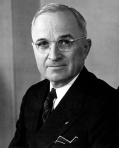 I would rather have a Medal of Honor than be President of the United States.
I would rather have a Medal of Honor than be President of the United States.
I recently had the privilege of visiting the Medal of Honor Museum aboard the USS Yorktown in beautiful Mt. Pleasant, South Carolina. Showcased in this museum is a moving tribute to our military heroes who served our country with honor, valor, and bravery.
What caught my eye was recognition given to the youngest recipient of the Medal of Honor, William “Willie” Johnston.
Born in St. Johnsbury, Vermont in 1850, Johnston was a drummer boy in Company D of the 3rd Vermont Infantry. His service in the Seven Day retreat in the Peninsula Campaign was exemplary.
During the retreat many of the men threw away their equipment so they had less of a load to carry. Johnston retained his drum and brought it safely to Harrison’s Landing. It was there he had the honor drumming for the division parade. He was the only boy to bring his instrument to the battlefield. As a result of his bravery, Johnston was given a medal; a Medal of Honor.
Heroic acts by leaders like Johnston give cause for us to reflect on our motives and how we might better serve those we lead. An 11 year-old drummer boy on a battlefield 149 years ago teaches us three leadership traits worth emulating.
Leaders carry their own weight. While the other men in the infantry threw away their equipment, Johnston held to his. So often during difficult times, the leader is not the one who discards the weight of responsibility but carries it on his shoulders. Think about it. How many people in your organization are shirking their responsibilities and how many are stepping up and being responsible? See a disparity?
Dietrich Bonhoeffer said, “Action springs not from thought, but from a readiness for responsibility.” At a tender young age, Johnston exemplified leadership beyond his years of understanding. As a drummer, he teaches us that it is not about rank or role within the organization, but heroes in our midst can be found if we dare to look.
Leaders know how to stand alone. At the conclusion of the retreat it was only Johnston who returned his drum from the battlefield. And it was only Johnston who had the honor of drumming for the division parade. When others exempt themselves from the bravery of the moment, they exempt themselves also from the honor that follows.
It’s been said, “When you are forced to stand alone, you realize what you have in you.” When you march to the beat of your own drum you do so knowing that there are certain places where only few leaders go. When others choose to the path of least resistance, you will cast your lot with the company of the brave. Those ranks may be few but you have grown to understand there are worse things than standing alone. By standing alone today you will lead the parade tomorrow.
Leaders summon uncommon courage in uncommon times. By shedding their gear, the other men did what was expedient. By holding on to his drum, Johnston did the exceptional. C.S. Lewis said, “Courage is not simply one of the virtues, but the form of every virtue at the testing point.”
Testing points come and go, but the enduring qualities of honor, sacrifice, and valor shine in unexpected ways from unlikely persons. This 11 year-old drummer boy distinguished himself among men and earned a medal from the president.
Consider the ranks of your organization. Who are the ones that stand out by their service, sacrifice, and dedication to the organization? These are the ones who march to the beat of their own drum- called to stand out, not to blend in. They may not have the title, but are leaders worthy of respect.
© 2011 Doug Dickerson
Visit Doug’s Management Moment website for more leadership principles and insight…


